Sarah Allen's Blog, page 59
January 25, 2012
My Query
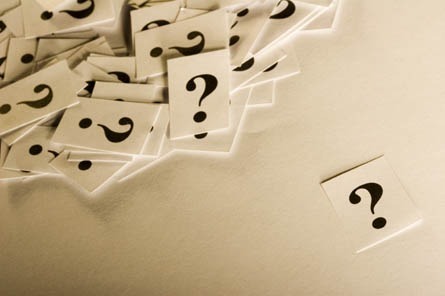 Decided I might as well go for it and see what I can come up with. This is the summary part, and I'll have the personalized agent stuff and personal info and all that jazz too. So this is the query for my novel, The Keeper, and I could really use some feedback and critique. What do you think?
Decided I might as well go for it and see what I can come up with. This is the summary part, and I'll have the personalized agent stuff and personal info and all that jazz too. So this is the query for my novel, The Keeper, and I could really use some feedback and critique. What do you think?***George Shepherd is grizzly keeper at the local zoo, and,what's much more difficult, guardian of his sixteen year old niece. After sevenyears he believes he's finally balanced the muddy claws, menstrual cycles and apast mistake he doesn't ever expect to escape.
Then a little boy shows up with the news that on Cindy'sseventeenth birthday, she will be taken as a princess by the prince of anotherworld. This is easily dismissed. He pats the boy on the head and takes himhome, hoping Cindy didn't hear anything.
At worst a sick prank, he thinks. Until things start turningup that can only be construed as evidence: symbols, letters, dreams, animpossible painting. With the help of Cindy's former teacher, he knows he mustdo whatever it takes to make sure Cindy is not in danger, even when it meansdirectly confronting the past he's tried so hard to bury. All before the leastmomentous birthday he hopes Cindy will ever have.
Part mystery, part romance, with a dose of magical realismand mid-life crisis, the true heart of this story is the exploration of whatkeeps us going when we lose it all, and the fine line between holding on fordear life and just letting go.
Sarah Allen
Published on January 25, 2012 04:30
January 24, 2012
How does one even begin the agent research process?
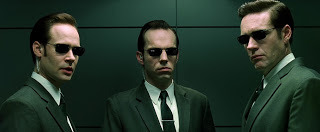 The book is done. It is on to the next steps. I've spent the past couple days scouring agent query and query tracker for information.
The book is done. It is on to the next steps. I've spent the past couple days scouring agent query and query tracker for information.Oh my heavens there is a lot of it.
There are so, so many agents out there, and then the ones outside my genre. I'm starting a tentative list, but its hard to differentiate between the ones that would do great and the ones that would be perfect, if you know what I mean. I'm new to this whole thing, obviously, and its fascinating and a bit complicated, though that's okay. Live and learn, right?
Really what matters is that this is a two person decision, so what I expect my job to be is make a list of agents and just keep submitting until something good happens. I've heard seven at a time is the magic number. And I think I'm over-analyzing things, too, because if I can find someone who is as passionate about my project as I am, then that's really the main thing I'm looking for, right? I'm one who believes that everything happens for a reason. My job: submit and deal as smartly as I can with what happens.
Right? Any advice? How do you find agents you think would be right for you? And what kinds of questions should I be ready with? Though I haven't done specific agent research until recently, I've done lots of reading on the whole agenting system and contracts and all the uproar and controversy around that, so I'll try and be as wise about this whole thing as I can. But...help?
This is all still a bit in the future yet. I've got editing to do and beta readers to give to and more editing. So couple of months, ish. We'll see. But I'm going to start working on a query letter and put it up here for your advice and critique in the next little while.
Agents. Ah!!!
Sarah Allen
p.s. Also, I mentioned Downton Abbey yesterday. Oh. My. Gosh. Why must the BBC be so freaking delicious? Its quite taken me over lately, case you couldn't tell.
Published on January 24, 2012 04:30
January 23, 2012
The book, ladies and gentleman, is DONE!!!!!!!!!!!!!!!!!!!!!!!!!!!!!!!!!!!!!!!
Yes. It's done. The first draft, at least. Right now I'm feeling a bit like this:


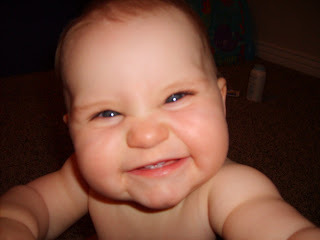

 Sorry, didn't mean to slober on your face. I'm celebrating by watching White Collar and Downton Abbey.
Sorry, didn't mean to slober on your face. I'm celebrating by watching White Collar and Downton Abbey.
Now time for edits and brainstorming Novel #2.
Sarah Allen




 Sorry, didn't mean to slober on your face. I'm celebrating by watching White Collar and Downton Abbey.
Sorry, didn't mean to slober on your face. I'm celebrating by watching White Collar and Downton Abbey.Now time for edits and brainstorming Novel #2.
Sarah Allen
Published on January 23, 2012 04:30
January 20, 2012
Guest Post: How To Find Time To Write, by Rochelle Melander
 Stephen King writes every day. A colleague of mine only writes when she has a book due. Most of the writers I coach wonder how they could ever write a book when they cannot dedicate all day, every day to their work. Writers, we need to think outside the box. There are plenty of ways to fit in writing time—if we get creative. Here are four ways you can honor your inner writer and keep a full-time job!
Stephen King writes every day. A colleague of mine only writes when she has a book due. Most of the writers I coach wonder how they could ever write a book when they cannot dedicate all day, every day to their work. Writers, we need to think outside the box. There are plenty of ways to fit in writing time—if we get creative. Here are four ways you can honor your inner writer and keep a full-time job!1. Take 20. Anthony Trollope was able write for three hours a day before going to work at the post office, but chances are he didn't have to do his hair or make a lunch. Author Cory Doctorow has said that he spends 20 minutes a day on writing his novels—and that's enough to finish writing a novel a year. All of us can find twenty minutes to dedicate to our work. Get up a bit early, go to bed later, or skip lunch—and use that time to write. 2. The Saturday (or Sunday) Writer. I've heard that the National Novel Writing participants who cannot write every day put in a big old marathon day each weekend. For writers who need time to get into the mood to write and hate quitting once they get there, taking a day each weekend to write sounds like a sensible thing to do. Pick up your computer, head off to a coffee shop, and write until your fingers get numb!
3 The Weekend Writer. A client of mine has written several of her fiction books on the weekend at hotels. She works full time and also has children, so taking a day a week to write is impossible. Instead, she books a hotel for one weekend a month through one of many available discount web sites. She enters the weekend with a chapter or word count goal and locks herself in the hotel until she finishes. (She does escape for food and exercise during the weekend.)
4. The Vacation Writer. Every summer, a writing friend takes a week of his vacation to participate in a writing workshop at one of the many writing programs in the United States. Other friends have given themselves a week at a remote cabin or friend's empty house to work on their books. Wherever you end up staying, taking a vacation to write can be the perfect way both write and have a life.
Writers, there is no ideal or correct way to make a writing life. Do what works for you!
Rochelle Melander is a certified professional coach and the author of 10 books, including a new book to help fiction and nonfiction writers write fast:Write-A-Thon: Write Your Book in 26 Days (And Live to Tell About It) (October 2011). Melander teaches professionals how to get published, establish credibility, and navigate the new world of social media. In 2006, Rochelle founded Dream Keepers Writing Group, a program that teaches writing to at-risk tweens and teens. Visit her online at www.writenowcoach.com.
Published on January 20, 2012 04:30
January 19, 2012
3 Keys to Brilliant Dialog
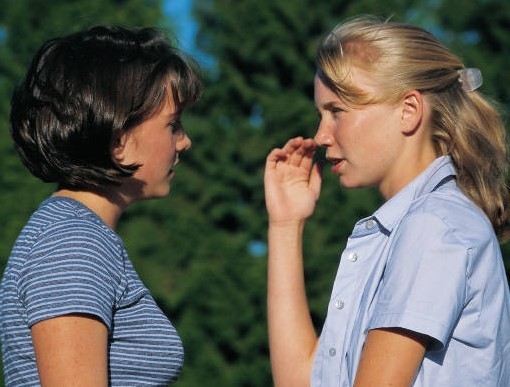 Dialog has always been one of my favorite things to write. It's easy for me, compared to other things (like plot). In my years of getting critiqued, dialog is the one thing on which I consistently receive positive feedback (sometimes the only positive thing, but we take what we can get, right?). Anyway, I'm just saying this so that when I explain how this dialog thing and all the advice about dialog fits and works in my head, you can take that head at least somewhat seriously.
Dialog has always been one of my favorite things to write. It's easy for me, compared to other things (like plot). In my years of getting critiqued, dialog is the one thing on which I consistently receive positive feedback (sometimes the only positive thing, but we take what we can get, right?). Anyway, I'm just saying this so that when I explain how this dialog thing and all the advice about dialog fits and works in my head, you can take that head at least somewhat seriously.1. Read your dialog aloud. You've heard this one before, I'm sure. But what are they really getting at here? It's all about sounding natural, but what does that even mean? To me, thinking "I must write Great Dialog" can be really intimidating, as opposed to "Its just me, yo." In everyday conversation you just talk, easily, almost reflexively, with little to no analytical thinking. When you read your dialog aloud it should feel as close to that as you can get it. If you can write it in that conversational way to begin with, all the better. (Don't believe anyone who says literary dialog can't be conversational. Just write. There are always edits.)
2. Get in Character Mode. In my experience the worst thing a person can do for their dialog (both in writing and acting, actually) is to think 'How would this character say this?' Right there you've lost all your naturality, and made your dialog stiff and contrived. You can't know how someone else would say or even perceive something, you can only know how you would say or perceive it. But Sarah, you say, my forty year old zookeeper musn't sound like his sixteen year old niece or people will figure out I'm a hack and throw one-star reviews at me.
So we bring out our inner thesbians. You know you have one. If you didn't you wouldn't be trying to tell a story. If you're going to write believable dialog for this character, you need to be that character. And that's not so hard, because they all came from you to begin with. They're all part of you, all in your head. So it's less thinking "How would a teenager say this" and more "I'm a teenager saying this." It's not some generic "A Teenager", it's you. As a teenager. Or a trucker, or a pirate or a seventy-year old retired FBI agent living in a rest-home. If you get rid of any self-conciousness and just write, the nuances between characters will be seem incredibly subtle to you, but will make all the difference. The key is to not think of what they say as separate from what you say.
3. Hear brilliant dialog. This is the fun part. This is when watching genius television (*ahem* Sherlock) counts as research. It's like learning any other skill, the best way is to watch someone who knows how to do it. Or for that matter, someone who doesn't and you can learn from their mistakes. Reading great dialog is good too, but I particularly like the idea of hearing it because dialog should flow from your pen as naturally and realistically as great dialog flows from a great actors tongue, which is to say, as naturally as it flows when you're telling your roommate the weird dream you had last night. I think its perhaps harder to get that same experience when you just have words on a page and didn't experience the way they flowed from the writers mind to that page. Does that make sense? But once you've experienced the ease and flow of good dialog it is of course a great idea to see how that translates to ink and paper.
Is dialog one of the hard bits for you, or easy? What have you done to make your dialog the most effective?
Sarah Allen
Published on January 19, 2012 04:30
January 18, 2012
Sherlock...Benedict Cumberbatch...can't.handle.the.awesome.
I...it was...no words. My roommate spent a good five full minutes laughing at my face.
Let's just say it was possibly the most emotionally effective episode of television ever created.
There's a reason Sherlock Holmes is one of the top three most well-known characters of all time. (The others being Mickey Mouse and Peter Pan. Can't remember where I heard that). We want to be him. Sort of. We want to be able to look at someone and know everything about them. He's just a brilliant character.
And Benedict Cumberbatch. Oh wow. I mean, beyond the squeeing about his curly hair and blue eyes (holy cow oh my gosh his eyes), the man is a genius. His Sherlock could not be more perfect. And Martin Freeman as Watson? Yes please. The fact that they're going to be in The Hobbit together (AHHH!!!) way overflows the worlds cup of awesome and almost makes up for the fact that we have to wait a year and a half (freaking year and a half!) for the next episode.
And you guys. I don't know how I'm going to make it, like for reals. When this episode was done I wanted to slap the freaking freak freak out of Steven Moffat. And then kiss his feet. But mostly slap him.
So yes, all I can manage right now is this incoherently fangirl squee, but if you haven't seen this show, you need to fix that. Right now. It's only six hours total, but if it were six hundred I would say the same. Please, please, please do yourself a favor and watch this show.
Why does this happen, guys? Why do we (please tell me its not just me) get so entirely invested in made-up stories and characters? I relish what that says about the importance of story to our most basic nature, but I can't quite figure out how it makes any logical sense. It's not about the logic at all, which is why it doesn't make sense, but still...why?
And how do we make people feel that way about our stories?
*Sigh*. God bless the BBC for everything they do. And God bless Benedict Cumberbatch and those eyes...
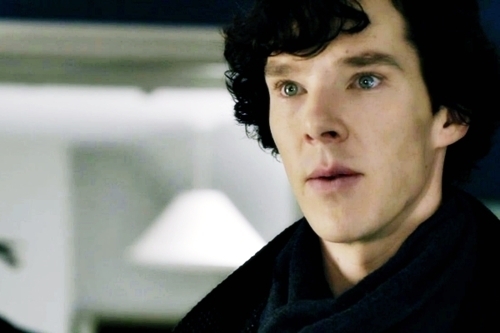
Sarah Allen
Published on January 18, 2012 04:30
January 17, 2012
Writing the Denouement
 So the big, climactic chapters are done. I only have a little bit of resolving left to go. After I wrote the end of the climactic chapter I thought to myself, what if I ended it here? It seemed like it could be cool, but I think I have a few more things to take care of before the story is done. I'll make sure my beta readers agree with me on that one.
So the big, climactic chapters are done. I only have a little bit of resolving left to go. After I wrote the end of the climactic chapter I thought to myself, what if I ended it here? It seemed like it could be cool, but I think I have a few more things to take care of before the story is done. I'll make sure my beta readers agree with me on that one.Now comes the denouement. The falling action, the resolution. I sort of know what needs to happen, but I want to make sure it plays out right, and has the right feel about it. Any tips on getting the most out of your ending? How best to make it work?
I even know what the last line is going to be. I just need to get there. I want the emotions to be in the right place, but I also don't want to lose too much of the drive, or action of the story. What kinds of things happen at the end of your novels?
Sarah Allen
Published on January 17, 2012 04:30
January 16, 2012
Oh Captain, My Captain and other dreams
I'm feeling sick today, which is a shame because I really wanted to make some progress on the book, but I'm writing the BIG SCENE and I feel even more inadequate when my brain feels congested. Ugh. We're going to try, though.
My roommate and I watched Dead Poets Society last night. I cried. I love Robin Williams. Something about his half-shy smile and puppy-dog eyes.
The book is coming you guys, its going to be finished soon. Then its time for edits, which I'm hoping won't take as long as drafting did. I've spent so much time on the drafting, that seems only fair. I'm starting to do research on agents. Soon, you guys. Soon. Geez I'm ready to be done.
Short story collection is making progress too. Edits are finished. Maybe. Cover design is in the works. I may have to withdraw a few stories from submission but I'm thinking April 1 as a tentative release date. That's not a joke, by the way.
Job is great. I adore preschool kids, snotty noses and all. I only wish the hours and everything was more viable and secure. We'll see what happens there.
I think I want to start working on another picture book, too. Or a screenplay. Definitely a second novel, once this first one is done. Also I would love to learn to play the saxophone. And buy a turtle.
Happy Martin Luther King day. I hope you have a dream, too.
What's going in your life?
Sarah Allen
My roommate and I watched Dead Poets Society last night. I cried. I love Robin Williams. Something about his half-shy smile and puppy-dog eyes.
The book is coming you guys, its going to be finished soon. Then its time for edits, which I'm hoping won't take as long as drafting did. I've spent so much time on the drafting, that seems only fair. I'm starting to do research on agents. Soon, you guys. Soon. Geez I'm ready to be done.
Short story collection is making progress too. Edits are finished. Maybe. Cover design is in the works. I may have to withdraw a few stories from submission but I'm thinking April 1 as a tentative release date. That's not a joke, by the way.
Job is great. I adore preschool kids, snotty noses and all. I only wish the hours and everything was more viable and secure. We'll see what happens there.
I think I want to start working on another picture book, too. Or a screenplay. Definitely a second novel, once this first one is done. Also I would love to learn to play the saxophone. And buy a turtle.
Happy Martin Luther King day. I hope you have a dream, too.
What's going in your life?
Sarah Allen
Published on January 16, 2012 04:30
January 13, 2012
Funny, lolz and stuff
Here's to laughter and other worthy causes:
[image error] [image error] [image error] [image error] [image error] [image error]
There's a lot more where that came from here. Have a happy weekend :)
Sarah Allen
[image error] [image error] [image error] [image error] [image error] [image error]
There's a lot more where that came from here. Have a happy weekend :)
Sarah Allen
Published on January 13, 2012 04:30



